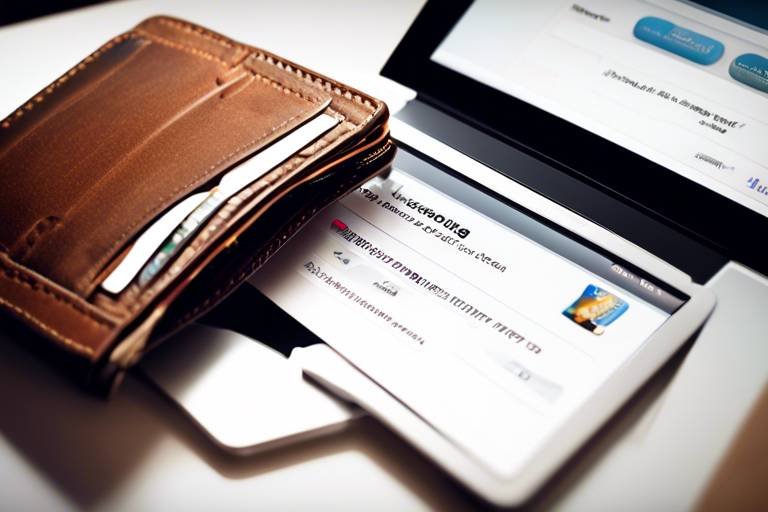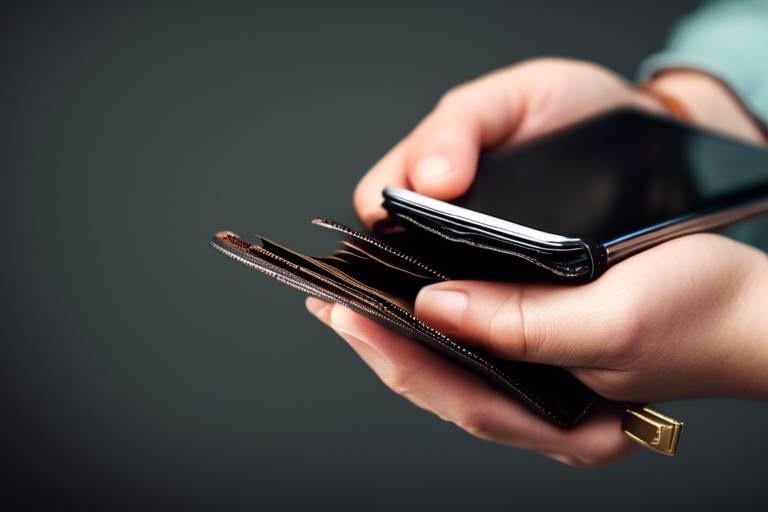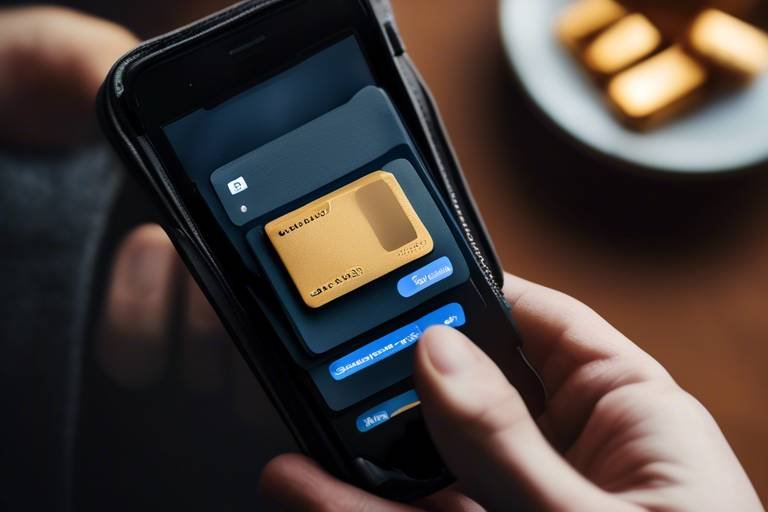The Ultimate Guide to Cryptocurrency Wallets - Which One is Right for You?
In the fast-paced world of digital currencies, having a secure and efficient way to manage your assets is crucial. This comprehensive guide explores various types of cryptocurrency wallets, their features, pros and cons, and how to choose the best one for your needs. Whether you're a seasoned trader or a curious newcomer, understanding the landscape of cryptocurrency wallets will empower you to make informed decisions and protect your investments.
So, what exactly are cryptocurrency wallets? Think of them as the digital equivalent of a bank account, but instead of holding traditional currency, they store your cryptocurrencies. These wallets come with unique keys—public and private—that allow you to send and receive digital assets securely. The public key is like your bank account number, which you can share with others to receive funds, while the private key is akin to your PIN, keeping your assets safe from prying eyes. Without these keys, your cryptocurrencies are essentially locked away, making wallets an essential tool for anyone engaging in cryptocurrency transactions.
There are several types of cryptocurrency wallets, each serving different purposes. Understanding these types can help you determine which one fits your needs best. The main categories include:
- Hot Wallets: These are connected to the internet and are ideal for frequent transactions.
- Cold Wallets: Offline storage solutions that enhance security.
- Hardware Wallets: Physical devices designed to securely store your cryptocurrency.
- Software Wallets: Applications that can be installed on your computer or mobile device.
Hot wallets are the go-to choice for those who need quick access to their funds. Since they are connected to the internet, they allow for seamless transactions and are perfect for day-to-day trading. However, this convenience comes with its own set of risks. Cyber threats are ever-present, and if you're not careful, you could find yourself on the losing end of a hack. Nevertheless, for casual users who prioritize ease of access, hot wallets can be a practical solution.
The benefits of hot wallets are numerous:
- Quick Access: You can easily send and receive funds without delay.
- User-Friendly: Most hot wallets come with intuitive interfaces that make navigation a breeze.
- Convenient for Trading: Ideal for active traders who need to manage their assets frequently.
Despite their convenience, hot wallets come with notable security risks. Since they are always online, they are more susceptible to hacking attempts. If a hacker gains access to your wallet, you could lose your funds in an instant. Therefore, it's essential to implement additional security measures, such as enabling two-factor authentication and keeping your software updated.
On the flip side, cold wallets offer a robust solution for those who prioritize security over convenience. These wallets are not connected to the internet, making them nearly immune to online attacks. Cold wallets are perfect for long-term storage of cryptocurrencies, especially for investors who want to hold their assets without the need for frequent access. They are the digital equivalent of a safe deposit box, ensuring that your cryptocurrencies are secure from cyber threats.
When it comes to selecting the right cryptocurrency wallet, it's essential to evaluate your usage patterns and security requirements. Consider how often you plan to access your funds, the amount of cryptocurrency you own, and your comfort level with technology. For instance, if you're a frequent trader, a hot wallet might be more suitable. Conversely, if you're a long-term investor, a cold wallet could be the better choice.
Security is paramount in cryptocurrency management. When choosing a wallet, look for key features such as:
- Encryption: Ensures that your private keys are stored securely.
- Two-Factor Authentication: Adds an extra layer of security by requiring a second form of verification.
- Backup Options: Allows you to recover your wallet in case of loss or theft.
The user interface and accessibility of a wallet can significantly impact your experience. A user-friendly design is crucial, especially for those new to cryptocurrency. Look for wallets that offer mobile compatibility, allowing you to manage your assets on the go. The easier it is to navigate your wallet, the more likely you are to engage with your cryptocurrency investments effectively.
1. What is the safest type of cryptocurrency wallet?
Cold wallets are generally considered the safest option for storing cryptocurrencies, as they are not connected to the internet.
2. Can I use multiple wallets?
Absolutely! Many users opt for a combination of hot and cold wallets to balance convenience and security.
3. How do I recover my wallet if I lose my private key?
If you lose your private key and do not have a backup, unfortunately, you will not be able to access your funds. Always ensure you have a secure backup of your keys.
4. Are hot wallets free to use?
Most hot wallets are free, but some may charge transaction fees. Always check the terms before using any wallet.

Understanding Cryptocurrency Wallets
Cryptocurrency wallets are essential tools for anyone diving into the world of digital currencies. But what exactly are they? In simple terms, a cryptocurrency wallet is a software program or a physical device that allows you to store, send, and receive cryptocurrencies like Bitcoin, Ethereum, and many others. Think of it as a digital bank account, but instead of holding traditional currency, it holds digital assets. Each wallet has a unique address, much like an email address, that allows you to transact with others in the cryptocurrency ecosystem.
So, how do these wallets function? They don’t actually store your cryptocurrencies in the traditional sense. Instead, they store the public and private keys that are essential for accessing your digital assets on the blockchain. The public key is akin to your bank account number—it can be shared with others to receive funds. The private key, however, is like your PIN; it must be kept secret and secure, as it grants access to your funds. Losing your private key means losing access to your assets forever, which is why understanding how wallets work is crucial.
Why are cryptocurrency wallets so important? If you plan to engage in cryptocurrency transactions, having a secure wallet is non-negotiable. Without a wallet, you can't send or receive cryptocurrencies. Moreover, wallets provide a level of control over your funds that exchanges don’t. When you keep your assets on an exchange, you’re entrusting them to a third party, which can be risky. In contrast, a wallet allows you to maintain ownership and control over your digital currency.
To break it down further, let’s consider the different levels of security that wallets provide. Here’s a quick overview:
| Wallet Type | Security Level | Best For |
|---|---|---|
| Hot Wallets | Low to Moderate | Frequent transactions |
| Cold Wallets | High | Long-term storage |
| Hardware Wallets | Very High | Serious investors |
| Software Wallets | Moderate | Everyday users |
In summary, understanding cryptocurrency wallets is pivotal in your journey through the digital currency landscape. They are not just tools for storage; they are gateways to the world of decentralized finance. By grasping how they work and the importance of safeguarding your private keys, you can confidently navigate the exciting—but sometimes perilous—terrain of cryptocurrency transactions.

Types of Cryptocurrency Wallets
When diving into the world of cryptocurrency, understanding the various types of wallets available is crucial. Each wallet type serves a unique purpose, catering to different needs and preferences of users. Whether you're a casual investor, a day trader, or someone looking to securely store your assets long-term, there's a wallet designed just for you. Let's explore the main types of cryptocurrency wallets, breaking down their features, advantages, and ideal use cases.
Hot wallets are the go-to choice for many cryptocurrency enthusiasts due to their convenience. These wallets are connected to the internet, allowing users to access their funds quickly and easily. Imagine having your cash in your pocket instead of in a safe; that’s the essence of hot wallets. They are perfect for those who engage in frequent transactions or trading. However, this connectivity does come with its own set of risks.
One of the standout features of hot wallets is their ease of use. With just a few clicks, you can send or receive cryptocurrencies, making them ideal for active traders. Additionally, many hot wallets come equipped with user-friendly interfaces and mobile applications, allowing you to manage your assets on the go. Here are some key advantages:
- Quick access to funds for immediate transactions.
- Compatible with numerous cryptocurrencies.
- Often free to use, with minimal setup required.
Despite their benefits, hot wallets are not without their downsides. The very fact that they are connected to the internet makes them susceptible to hacks and phishing attacks. If you wouldn't leave your front door wide open, why would you leave your funds so exposed? Therefore, it’s essential to take precautions when using hot wallets, such as enabling two-factor authentication and regularly monitoring your transactions.
On the other end of the spectrum are cold wallets, which provide a more secure option for storing cryptocurrencies. These wallets are not connected to the internet, making them significantly less vulnerable to online threats. Think of cold wallets as a safe deposit box for your valuables; they keep your assets secure and out of reach from potential hackers. Cold wallets are ideal for long-term investors who plan to hold their assets without frequent trading.
Cold wallets come in various forms, including hardware wallets and paper wallets. Hardware wallets are physical devices that securely store your private keys offline, while paper wallets involve printing your keys on paper. Both options offer enhanced security but require a bit more effort to set up and manage.
Now that you have an understanding of hot and cold wallets, the next step is to choose the right one for your needs. This decision should be based on your usage patterns, security requirements, and personal preferences. Are you looking to trade frequently, or do you want a safe place to store your investments? Evaluating these factors will help you make an informed choice.
Security is paramount in cryptocurrency management. When selecting a wallet, look for key features such as encryption, two-factor authentication, and backup options. These elements can significantly enhance the safety of your digital assets. Remember, a wallet is only as secure as the measures you take to protect it.
The user interface and accessibility of a wallet can significantly impact your experience. A wallet that’s easy to navigate will save you time and reduce frustration, especially during those moments when you need to make a quick transaction. Additionally, consider whether the wallet has a mobile app, as this can provide greater flexibility for managing your assets on the go.
What is the safest type of cryptocurrency wallet?
Cold wallets are generally considered the safest option for long-term storage of cryptocurrencies, as they are not connected to the internet.
Can I use multiple wallets?
Absolutely! Many users choose to have both hot and cold wallets to balance convenience and security.
Are hot wallets free to use?
Most hot wallets are free, but some may charge transaction fees or offer premium features for a cost.
How do I recover my wallet if I lose access?
Always ensure you have a backup of your wallet's private keys or seed phrase, as this will allow you to recover access if needed.

Hot Wallets
Hot wallets are like the bustling cafes of the cryptocurrency world—always open and ready for action. They are digital wallets that are connected to the internet, which makes them incredibly convenient for users who frequently buy, sell, or trade cryptocurrencies. Imagine being able to whip out your phone or laptop and make a transaction in seconds; that's the allure of hot wallets! However, while their accessibility is a huge plus, it also comes with its own set of challenges.
One of the primary benefits of hot wallets is their ease of use. Whether you're a seasoned trader or a newbie just dipping your toes into the crypto waters, these wallets provide a user-friendly interface that simplifies the process of managing your digital assets. You can quickly send and receive cryptocurrencies with just a few clicks, and many hot wallets even offer mobile apps for on-the-go transactions. This makes them ideal for everyday users who need quick access to their funds.
However, convenience often comes at a cost. The major downside to hot wallets is their security vulnerabilities. Since they are online, they are susceptible to hacking attempts and phishing scams. Imagine leaving your front door wide open in a busy neighborhood; that’s what using a hot wallet can feel like. To mitigate these risks, it's crucial to implement strong security measures. Always use wallets that offer two-factor authentication and keep your software updated to protect against potential threats.
When considering whether a hot wallet is right for you, think about your cryptocurrency usage patterns. If you’re someone who trades frequently or needs to access your funds quickly, hot wallets are a practical choice. However, if you’re planning to hold your assets for the long term, you might want to consider a more secure option, like a cold wallet. In the end, it’s all about finding the right balance between accessibility and security.
In summary, hot wallets are perfect for those who prioritize convenience and speed in their cryptocurrency transactions. Just remember to stay vigilant and employ best security practices to keep your assets safe. After all, in the fast-paced world of cryptocurrency, being prepared is half the battle!
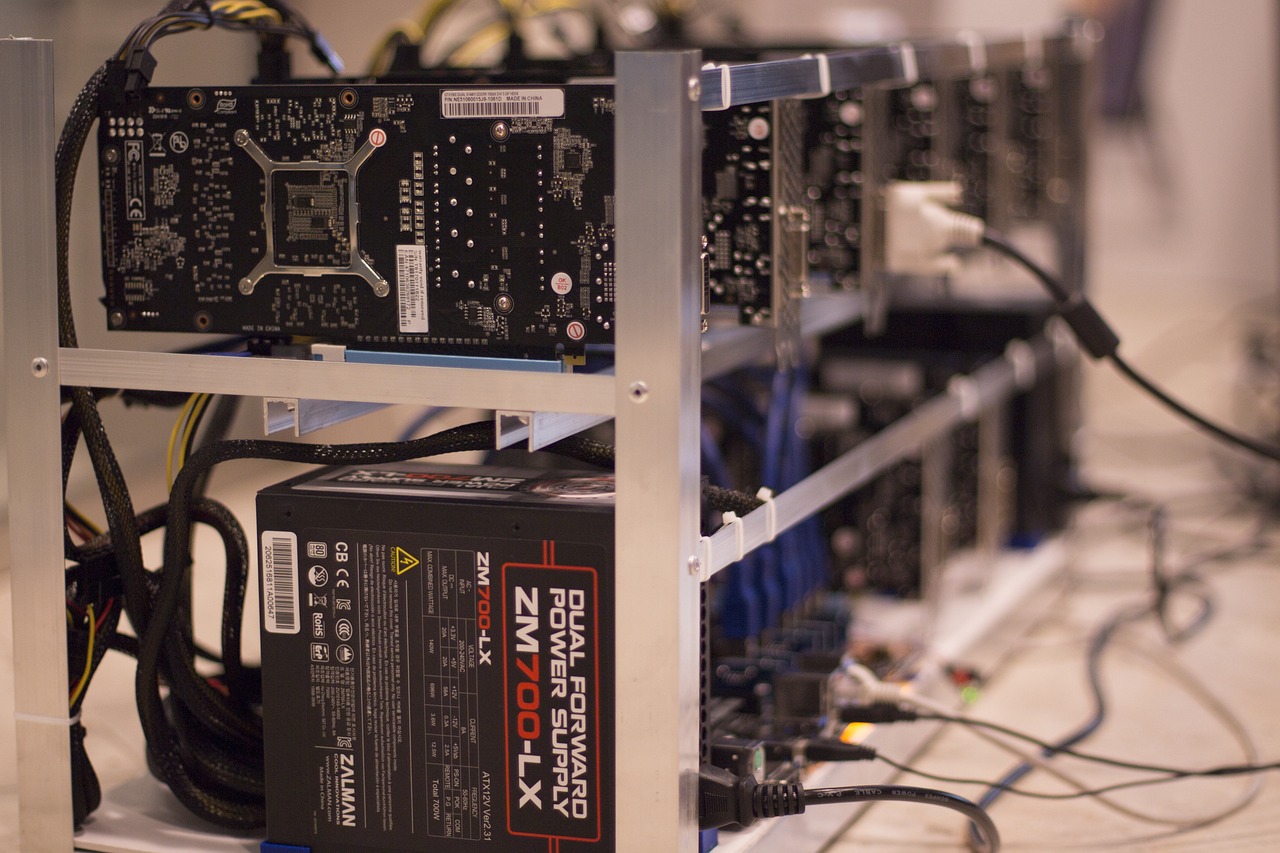
Pros of Hot Wallets
Hot wallets have rapidly gained popularity among cryptocurrency enthusiasts, and it's not hard to see why. One of the most significant advantages is their convenience. Since hot wallets are connected to the internet, they allow users to access their funds almost instantly. Imagine you're out with friends and want to make a quick transaction; with a hot wallet, you can do that in mere seconds, without the hassle of moving your assets around. This makes them particularly appealing for those who engage in frequent trading or need to make quick purchases.
Another benefit is the user-friendly interfaces that many hot wallets offer. Unlike some of the more complex cold storage solutions, hot wallets are often designed with the average user in mind. This means you don’t need to be a tech whiz to navigate through your wallet's features. With intuitive designs, you can easily send, receive, and manage your cryptocurrencies without feeling overwhelmed.
Moreover, hot wallets typically provide a wide range of supported cryptocurrencies. Many of them allow you to store various types of coins and tokens in one place, making it easier to manage a diverse portfolio. This is a significant advantage for users who invest in multiple cryptocurrencies and want a centralized location for their assets.
Additionally, hot wallets often come with built-in features that enhance user experience. For example, some wallets include real-time market data, allowing you to monitor your investments and make informed decisions on the go. This feature is particularly useful for traders who need to keep tabs on market fluctuations.
To summarize, the pros of hot wallets can be encapsulated in the following points:
- Quick Access: Instant transactions make them ideal for active traders.
- User-Friendly: Simple interfaces cater to beginners and experienced users alike.
- Diverse Support: Ability to store multiple cryptocurrencies in one wallet.
- Enhanced Features: Real-time market data and other tools enhance usability.
In conclusion, while hot wallets are not without their risks, their convenience and user-centric design make them a popular choice for anyone looking to engage with cryptocurrencies on a regular basis. Whether you're a casual user or a seasoned trader, understanding the advantages of hot wallets can help you make informed decisions about managing your digital assets.
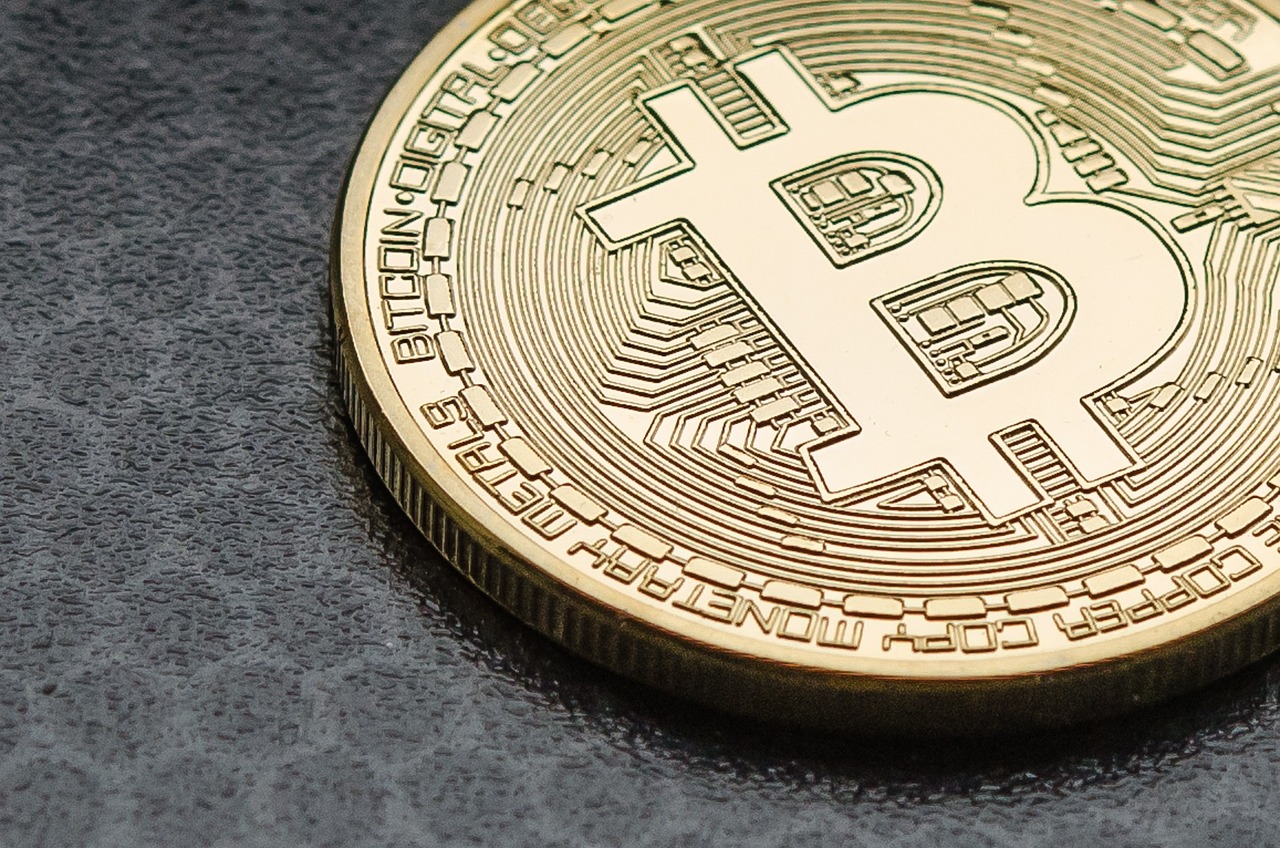
Cons of Hot Wallets
While hot wallets are undeniably convenient, they come with a set of disadvantages that every cryptocurrency user should consider. One of the most significant concerns is security vulnerabilities. Since hot wallets are connected to the internet, they are susceptible to hacking attempts. Cybercriminals are constantly developing new methods to exploit weaknesses in online systems, and unfortunately, hot wallets can be an easy target. Imagine leaving your front door wide open; that's essentially what using a hot wallet can feel like if you're not careful.
Another downside is the risk of phishing attacks. Users can be tricked into providing their private keys or recovery phrases through deceptive emails or websites. This is akin to someone pretending to be your friend to gain access to your house; it can happen to anyone, and it often happens when you least expect it. Therefore, users must remain vigilant and always verify the authenticity of any requests for sensitive information.
Additionally, hot wallets might not be the best option for those who hold large amounts of cryptocurrency. If you’re an investor with a significant portfolio, keeping your assets in a hot wallet might feel like storing your life savings in a wallet you carry around in your pocket. The potential for loss is high. In contrast, cold wallets provide a safer environment for long-term storage, as they are not connected to the internet.
Moreover, hot wallets can be affected by software glitches or outages. Imagine trying to access your funds during a market surge, only to find that your wallet app is down. These technical issues can lead to missed opportunities and frustration. Therefore, while hot wallets are excellent for quick transactions, they may not be reliable when you need them the most.
In summary, while hot wallets offer ease of use and quick access to your funds, the security risks, potential for phishing attacks, unsuitability for large holdings, and software vulnerabilities are significant factors to consider. It’s crucial to weigh these cons against the benefits before deciding if a hot wallet is the right choice for your cryptocurrency management.
- What is a hot wallet? A hot wallet is a type of cryptocurrency wallet that is connected to the internet, allowing for quick and easy access to your digital assets.
- Are hot wallets safe? While hot wallets are convenient, they are less secure than cold wallets due to their online connectivity, making them more vulnerable to hacking.
- Can I use a hot wallet for large amounts of cryptocurrency? It is generally not recommended to store large amounts of cryptocurrency in a hot wallet due to security risks; cold wallets are a safer option for significant holdings.
- What should I do to secure my hot wallet? Always enable two-factor authentication, use strong passwords, and be cautious of phishing attempts to enhance the security of your hot wallet.

Cold Wallets
When it comes to securing your cryptocurrency, are like the Fort Knox of digital asset storage. Unlike hot wallets that are always connected to the internet, cold wallets are offline, making them a preferred choice for those who prioritize security above all else. Imagine storing your valuable items in a safe deposit box rather than leaving them on your kitchen counter; that’s the essence of using a cold wallet. They are particularly suitable for long-term investors who don't need to access their funds frequently.
Cold wallets come in various forms, including hardware wallets and paper wallets. Hardware wallets are physical devices that store your private keys offline, while paper wallets involve printing your keys on paper. Both methods provide a level of security that hot wallets simply cannot match. With cold wallets, even if your computer is compromised, your funds remain safe, as the keys are never exposed to the internet.
However, cold wallets are not without their challenges. For starters, they can be less convenient for active traders. If you’re someone who likes to buy and sell cryptocurrency daily, the process of transferring funds from a cold wallet to a hot wallet can be cumbersome. It’s like having to drive to a bank every time you want to make a purchase rather than simply swiping a card. Therefore, while cold wallets offer unparalleled security, they are best suited for users who are comfortable with a more hands-off approach to managing their crypto assets.
To give you a clearer picture, here’s a quick comparison of hot and cold wallets:
| Feature | Hot Wallets | Cold Wallets |
|---|---|---|
| Connection to Internet | Always connected | Offline |
| Security Level | Moderate | High |
| Accessibility | Easy and quick | Less convenient |
| Best For | Frequent transactions | Long-term storage |
In summary, cold wallets are an excellent choice for anyone serious about protecting their cryptocurrency investments. They provide a robust layer of security that is essential for safeguarding your assets from potential threats. Just remember, while they may not be the most convenient option for day-to-day transactions, the peace of mind they offer is often worth the trade-off.
- What is the main advantage of using cold wallets? The primary advantage is enhanced security, as cold wallets are offline and less susceptible to hacking.
- Can I use a cold wallet for daily transactions? While possible, it is not recommended due to the inconvenience and time required to transfer funds.
- Are paper wallets safe? Yes, paper wallets can be safe if generated and stored properly, but they are vulnerable to physical damage or loss.
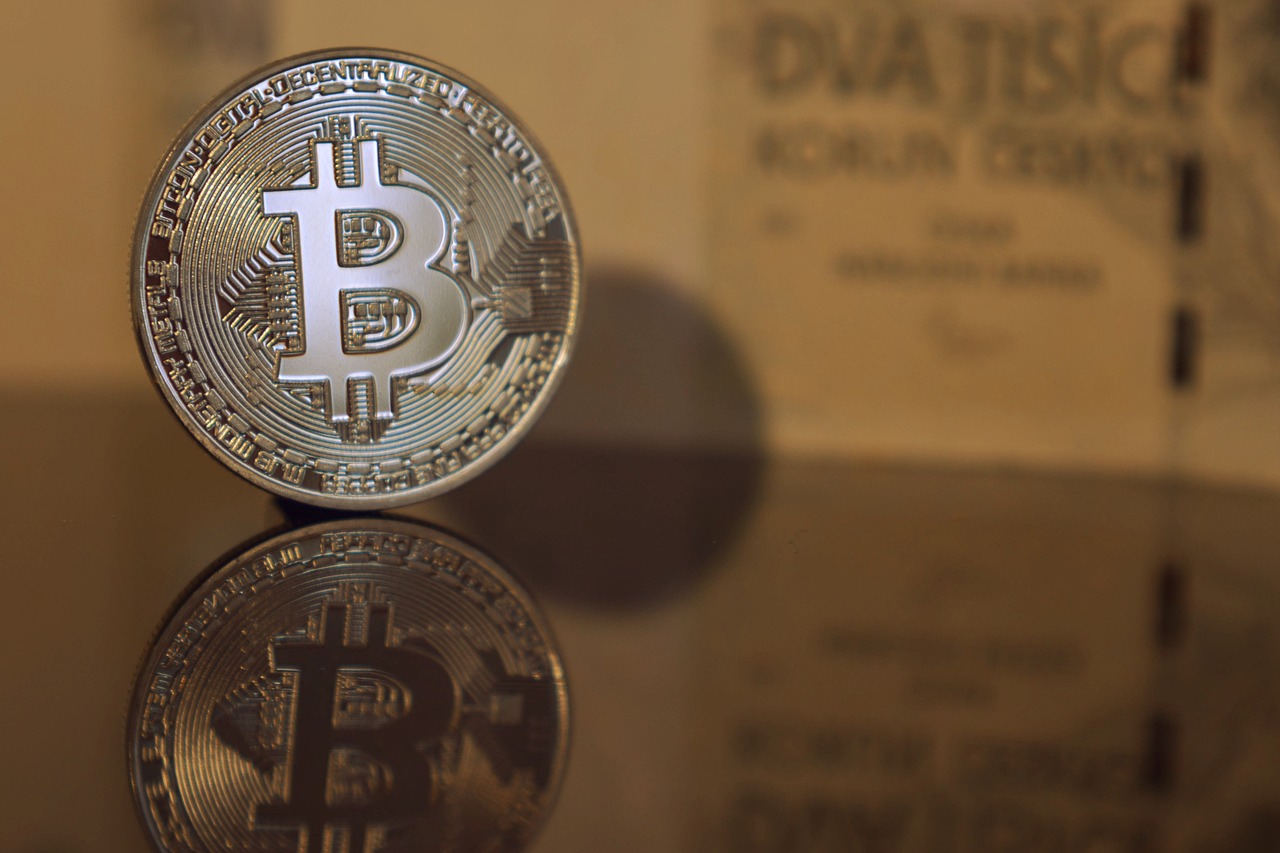
Choosing the Right Wallet for Your Needs
When it comes to cryptocurrency, choosing the right wallet is like picking the perfect backpack for a hiking trip. You want something that fits your needs, keeps your essentials safe, and allows you to access your gear quickly when you need it. With so many options available, it can be overwhelming to determine which wallet suits your unique situation. The first step is to evaluate your usage patterns. Are you a casual investor who occasionally dips into the market, or are you a day trader making multiple transactions a day? Your answer will significantly influence your choice.
Next, consider security requirements. If you’re holding a large amount of cryptocurrency, you’ll want a wallet that offers robust security features. Cold wallets, for instance, provide offline storage that is less susceptible to hacking. However, if you’re more of a frequent user, a hot wallet might be more convenient, despite the added risks. Think of it this way: if your crypto assets are like your favorite toys, a cold wallet is a locked cabinet, while a hot wallet is like a toy box you can easily access. Each has its place, but the right choice depends on how often you want to play with your toys.
To make an informed decision, here are some key factors to consider:
- Frequency of Transactions: If you trade often, a hot wallet may suit you best due to its accessibility.
- Amount of Cryptocurrency: For large holdings, prioritize wallets with advanced security features.
- Technical Expertise: Some wallets are more user-friendly than others; choose one that matches your comfort level with technology.
- Backup Options: Look for wallets that offer easy backup and recovery solutions in case you lose access.
In addition to these factors, it's essential to consider the user experience. A wallet with a complicated interface can lead to frustration and mistakes, especially if you’re new to the crypto world. Look for wallets that offer intuitive designs and mobile compatibility, allowing you to manage your assets on-the-go. After all, you wouldn’t want to struggle with a confusing app when you’re trying to make a quick transaction.
Ultimately, the right wallet is a personal choice that should align with your specific needs and lifestyle. Take the time to research and even test out a few options to see what feels best for you. Remember, your cryptocurrency is an investment, and it deserves a safe and convenient home.
As you dive deeper into the world of cryptocurrency wallets, you may have some lingering questions. Here are a few common queries that many new users have:
- What is the safest type of cryptocurrency wallet? Cold wallets are generally considered the safest because they are not connected to the internet.
- Can I use multiple wallets? Yes, many users opt for a combination of hot and cold wallets to balance convenience and security.
- What happens if I lose my wallet? If you lose a hardware wallet, your funds may be inaccessible unless you have a backup. Always ensure you have recovery phrases stored securely.
- Are cryptocurrency wallets free? While many wallets are free to use, some hardware wallets require a purchase. Always consider the features offered when evaluating costs.

Security Features to Consider
When it comes to managing your cryptocurrency, security should be your top priority. With the increasing number of cyber threats and hacks in the digital space, understanding the security features of a cryptocurrency wallet is crucial. Imagine your wallet as a treasure chest; the more locks and barriers it has, the safer your treasures will be. Here are some essential security features you should consider when choosing a wallet:
1. Encryption: A robust encryption process ensures that your private keys and sensitive data are scrambled and unreadable to unauthorized users. This is like having a secret code that only you and your wallet can understand. Look for wallets that use advanced encryption standards, such as AES-256.
2. Two-Factor Authentication (2FA): This feature adds an extra layer of security by requiring two forms of identification before allowing access to your wallet. Typically, this means something you know (a password) and something you have (a mobile device). It’s like needing both a key and a fingerprint to unlock your treasure chest.
3. Backup Options: A good wallet should offer you the ability to back up your keys and data securely. This ensures that even if your device is lost or damaged, you can still access your funds. Many wallets provide a recovery phrase that acts as a safety net, similar to a spare key hidden under a rock.
4. Multi-Signature Support: For those who manage significant amounts of cryptocurrency or operate within a team, multi-signature wallets can be a game-changer. This feature requires multiple private keys to authorize a transaction, adding a layer of security that is particularly useful for businesses. Think of it as needing several keys from different people to open a vault.
5. Regular Updates: The digital landscape is continually evolving, and so are the methods used by hackers. A wallet that receives regular updates and patches is more likely to stay secure against emerging threats. It’s akin to having a security system that gets upgraded with the latest technology to fend off intruders.
In conclusion, while the convenience of accessing your funds quickly is appealing, it’s essential not to overlook these security features. By choosing a wallet that incorporates strong encryption, two-factor authentication, reliable backup options, multi-signature support, and regular updates, you can significantly enhance the safety of your cryptocurrency investments. Remember, in the world of digital assets, it’s better to be safe than sorry!
- What is a cryptocurrency wallet? A cryptocurrency wallet is a digital tool that allows you to store, send, and receive cryptocurrencies.
- Are hot wallets safe to use? While hot wallets are convenient for frequent transactions, they are more susceptible to hacks. It's essential to use security features to protect your assets.
- What are cold wallets? Cold wallets are offline storage solutions that provide enhanced security for long-term cryptocurrency holdings.
- How can I ensure my wallet is secure? Look for wallets with strong encryption, two-factor authentication, and regular updates to protect your funds.

User Experience and Accessibility
When diving into the world of cryptocurrency, one of the most critical aspects to consider is user experience and accessibility. Imagine trying to navigate a complex maze without a map; that’s what managing your digital assets feels like if your wallet isn’t user-friendly. A well-designed wallet simplifies the entire process, making it easier for both beginners and seasoned traders to manage their assets efficiently.
Accessibility goes hand in hand with user experience. A wallet that is difficult to access or requires multiple convoluted steps to perform simple transactions can quickly become a source of frustration. Think about it: if you’re in a hurry to make a trade, the last thing you want is to be fumbling through an app that feels more like a puzzle than a tool. Therefore, wallets that offer a seamless experience across various devices—be it desktop, mobile, or even browser extensions—are highly valued.
Moreover, the user interface (UI) plays a pivotal role in determining how easily users can navigate their wallets. A clean, intuitive layout with clear labels and straightforward navigation can make all the difference. For instance, wallets that categorize assets, display balances prominently, and provide quick access to transaction history are often preferred. In contrast, those that bury essential functions behind layers of menus can leave users feeling lost.
Another important aspect to consider is mobile compatibility. With the rise of on-the-go trading, having a wallet that works well on mobile devices is essential. A responsive design that adapts to various screen sizes and maintains functionality is crucial for users who want to manage their investments from anywhere. A wallet that allows you to send or receive funds with just a few taps on your smartphone can be a game-changer, especially in a fast-paced market.
In summary, when evaluating cryptocurrency wallets, prioritize those that offer a smooth user experience and easy accessibility. Look for features that enhance your interaction with the wallet, such as:
- Intuitive navigation and layout
- Mobile and desktop compatibility
- Quick access to key features
- Responsive customer support
By focusing on these elements, you can ensure that your cryptocurrency management experience is not only efficient but also enjoyable.
Q1: What is the most important feature to look for in a cryptocurrency wallet?
A1: While security is paramount, user experience and accessibility are also crucial. A wallet that is easy to navigate and can be accessed on multiple devices will enhance your overall experience.
Q2: Can I use a cryptocurrency wallet on my mobile device?
A2: Yes! Many cryptocurrency wallets offer mobile applications that allow you to manage your assets on the go. Just ensure that the app is user-friendly and secure.
Q3: What should I do if I find a wallet difficult to use?
A3: If a wallet feels cumbersome or confusing, it’s best to explore other options. There are numerous wallets available, and finding one that suits your needs can significantly improve your experience.
Frequently Asked Questions
- What is a cryptocurrency wallet?
A cryptocurrency wallet is a digital tool that allows you to store, send, and receive cryptocurrencies. It works by holding your private keys, which are essential for accessing your digital assets on the blockchain. Think of it as a virtual bank account for your crypto funds!
- What are the main types of cryptocurrency wallets?
There are primarily two categories of cryptocurrency wallets: hot wallets and cold wallets. Hot wallets are connected to the internet, making them convenient for frequent transactions, while cold wallets are offline, providing enhanced security for long-term storage. Each type has its pros and cons, so it’s important to choose based on your needs!
- Are hot wallets safe?
Hot wallets offer ease of access and quick transactions, but they come with security risks due to their online nature. While they are generally safe for everyday use, it’s crucial to implement security measures like strong passwords and two-factor authentication to protect your assets.
- What are the benefits of using cold wallets?
Cold wallets are considered one of the safest options for storing cryptocurrencies because they are not connected to the internet. This offline storage significantly reduces the risk of hacking and theft. They are ideal for users who plan to hold their assets for a long time without frequent transactions.
- How do I choose the right cryptocurrency wallet?
Choosing the right wallet depends on your specific needs. Consider factors like how often you plan to trade, the amount of cryptocurrency you hold, and your security preferences. If you trade frequently, a hot wallet may be suitable, while a cold wallet is better for long-term storage.
- What security features should I look for in a wallet?
When selecting a cryptocurrency wallet, look for features such as strong encryption, two-factor authentication, and backup options. These security measures help protect your assets from unauthorized access and ensure that you can recover your wallet if needed.
- Can I use multiple wallets for my cryptocurrencies?
Absolutely! Many users choose to use multiple wallets to manage their cryptocurrencies effectively. For instance, you might use a hot wallet for daily transactions and a cold wallet for long-term storage. This strategy can enhance both security and convenience.


